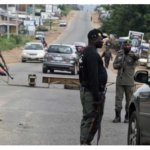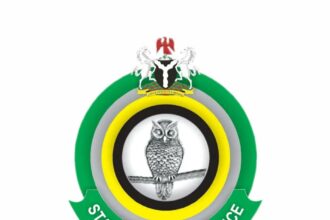Fifty-eight years after the Asaba massacre, the Asagba of Asaba, Obi (Prof.) Epiphany Azinge (SAN), has renewed calls for national recognition of the victims, urging President Bola Tinubu to immortalise them by establishing a federal university in Asaba and issuing an official presidential apology on behalf of the Nigerian government.
The monarch made the appeal in Asaba on Monday while leading thousands of indigenes in a solemn remembrance ceremony marking the 58th anniversary of the October 7, 1967 killings of hundreds of Asaba citizens during the Nigerian Civil War. At exactly 12 noon, the Asagba led a minute of silence in honour of the victims, describing them as “true martyrs whose blood watered the land and gave life to the city’s growth and prosperity.”
“The once rustic, quiet town by the River Niger has today transformed into one of the fastest-growing capital cities, not only in Nigeria but in sub-Saharan Africa,” Azinge said. According to him, “Asaba has progressed because of the blood of our sons and daughters massacred 58 years ago. They are martyrs we proudly identify with — our forebears and the closest ancestors we can relate to. As we pour libations today, we invoke their spirits as ancestors in their own right.”
The Asagba emphasised the need for a national monument in honour of the victims and reaffirmed that the people of Asaba deserve a formal apology from a sitting President for the injustice of the massacre. “We must have a fitting memorial for them. We deserve an apology from the Nigerian government, and we need a federal university established here in Asaba in their memory,” he said.
Also speaking, the Isama Ajie of Asaba, Chuck Chukwuemeka Nduka-Eze, described the remembrance as “a historic and necessary act of honour.” “From today henceforth, Asaba will observe a one-minute silence every October 7 at 12 noon to honour our people who were killed in the Asaba massacre. A 21-gun salute will mark the occasion as a symbol of our collective respect,” he said.
Nduka-Eze added that the annual remembrance would now be part of Asaba’s official cultural calendar. “We have been speaking about the massacre to raise awareness, and it is now time to institutionalise this in our city’s calendar. When we met with the President, we raised our concerns. Although he was silent on the Asaba massacre, it does not mean he is unaware. We do not remember it with bitterness but with reflection, because remembrance is what the living owes the dead,” he added.
Source: https://guardian.ng/











